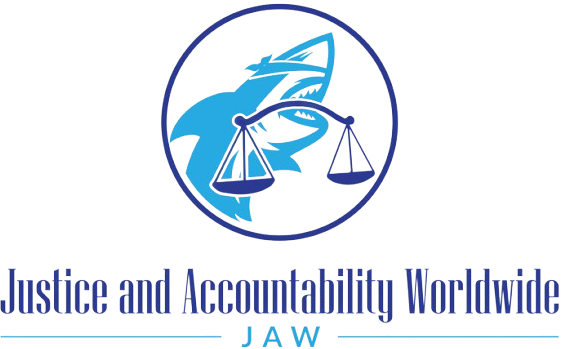How we work
- Home
- How we work
Strategic Advocacy and Engagements
Strategic advocacy and engagement are crucial for transforming behavior, policy, and practice. JAW aims to engage governments, state actors, civil society actors, the UN bodies, regional organizations, justice mechanisms, and the international community to drive change.
Our methodology is based on verified and corroborated information on specific human rights violations or broader human rights issues, which we can use to encourage authorities or institutions to act on the information provided, conduct their own investigations, and remedy the human rights violations or problems raised.
Our methodology is based on verified and corroborated information on specific human rights violations or broader human rights issues, which we can use to encourage authorities or institutions to act on the information provided, conduct their own investigations, and remedy the human rights violations or problems raised.
Technical Assistance and Capacity Building
JAW collaborates with justice institutions, law faculties, bar associations, and national stakeholders to enhance their capacity for providing survivor-centered, effective justice, promotion and protection of human rights and respect for the rule of law. We work with our partners and support them to identify/recognize their own limitations and pinpoint where technical support can be most beneficial. This enables them to collaborate on creating tailored capacity-building programs that address their specific needs and circumstances. JAW usually pairs national lawyers with international experts to improve mentorship and facilitate the sharing of legal strategies and capacity development.
Legal Reforms and Policy Development
JAW conducts research to pinpoint deficiencies in legislation, propose methods to streamline and update current laws, and advocate for the implementation of legal reforms in order to improve the effectiveness and fairness of the justice system.
JAW collaborates with governmental bodies, law reform commissions, legislators, judges, bar associations, and judicial institutions to facilitate the development, review, and implementation of legal reforms. These efforts focus on enhancing governance, improving access to justice, and upholding the rule of law.
JAW also collaborates with judges and prosecutors to effectively prepare and present cases in court, aiming to drive legislative change through advocacy with government officials and parliamentarians. Our research and writing efforts provide a vital empirical foundation for various law reform initiatives.
JAW collaborates with governmental bodies, law reform commissions, legislators, judges, bar associations, and judicial institutions to facilitate the development, review, and implementation of legal reforms. These efforts focus on enhancing governance, improving access to justice, and upholding the rule of law.
JAW also collaborates with judges and prosecutors to effectively prepare and present cases in court, aiming to drive legislative change through advocacy with government officials and parliamentarians. Our research and writing efforts provide a vital empirical foundation for various law reform initiatives.
Strategic litigation and support for victims
Strategic litigation serves as an effective instrument in addressing serious violations of international human rights law and international humanitarian law. The primary objective of our strategic litigation efforts is to assist victims, support human rights defenders, and facilitate systemic change.
Impact assessments and strategic interventions
Impact assessments assist relevant governmental agencies and companies in tackling human rights abuses and concerns resulting from business operations.
JAW supports the conduct of human rights impact assessment by analyzing international human rights laws and regulatory frameworks, engaging with stakeholders and experts, identifying relevant human rights issues for the company and its supply chains, and formulating actions to prevent or mitigate potential or actual negative impacts.
We facilitate the integration of human rights into broader compliance frameworks, such as current anti-corruption, bribery, and other compliance initiatives, focused on tackling ESG and human rights risk areas. We assist in developing systems and processes that are specifically aimed at addressing human rights risks while embedding them into larger international regulatory compliance practices, including due diligence activities.
We help develop methodologies for recognizing and tracking emerging risks, and assist in managing them. We also help set up grievance mechanisms and support victims and communities in pursuing redress or legal remedies.
JAW supports the conduct of human rights impact assessment by analyzing international human rights laws and regulatory frameworks, engaging with stakeholders and experts, identifying relevant human rights issues for the company and its supply chains, and formulating actions to prevent or mitigate potential or actual negative impacts.
We facilitate the integration of human rights into broader compliance frameworks, such as current anti-corruption, bribery, and other compliance initiatives, focused on tackling ESG and human rights risk areas. We assist in developing systems and processes that are specifically aimed at addressing human rights risks while embedding them into larger international regulatory compliance practices, including due diligence activities.
We help develop methodologies for recognizing and tracking emerging risks, and assist in managing them. We also help set up grievance mechanisms and support victims and communities in pursuing redress or legal remedies.
